
Dr Tonny Matjila, Research Training Officer in the College of Graduate Studies (CGS) at Unisa, recently earned a PhD in Psychology. His master's research study, which centred on the experiences of students living with disabilities and focused on students with physical, visual and hearing disabilities, cemented his passion for advocacy for marginalised students.
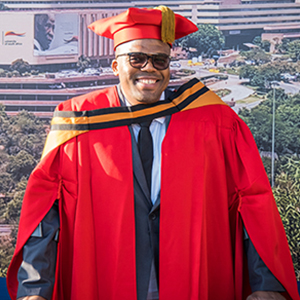
Dr Tonny Matjila
This led to focusing his PhD research project specifically on students with hearing difficulties. Findings revealed that the students who are deaf and hard of hearing (SDHH) face significant support challenges compared to their physically abled counterparts. His doctoral research uncovers the students' challenges and critically contributes to Sustainable Development Goal (SDG) 4, which promotes inclusive and equitable education and the National Development Plan (NDP) 2030.
When Matjila started his doctoral research, South African Sign Language (SASL) was acknowledged as a language but not certified as one of the official languages of South Africa. His study was completed just when the language was about to be endorsed as the 12th official language in South Africa, making his contribution more impactful. He believes this is the right move to recognise, support and accommodate the deaf community and influence the development of higher education policies and curricula to support SDHH.
Matjila suggests that South African universities should revise their language and communication policies, including the policy about students living with disabilities. He says the main challenge for SDHH is the communication barrier. "Higher education acknowledges that SDHH is aware of their challenges and reassures students that they will be supported, but once registered, they seem to be on their own," he asserts. The Covid-19 pandemic and the development of online and virtual teaching and learning platforms further exacerbated this marginalisation. He notes that the general population can show support to people living with disabilities by treating them as their equals. "The first thing is to show empathy, not sympathy," he explains.
Along his journey, he had the opportunity to network with prominent academics such as Professors Bagele Chilisa and Donna Mertens, who influenced his choice to use the transformative research paradigm in his study. Their inspiration resulted in him publishing an article on this paradigm. Matjila aspires to be an NRF-rated and internationally renowned scholar in his discipline. He believes he still has a valuable and significant role to contribute to his field of study.
The research support interventions offered by the School of Interdisciplinary Research and Graduate Studies (SIRGS) and the School of Transdisciplinary Research and Graduate Studies (STRGS) added tremendous value to Matjila's academic journey. He also received an opportunity to present an academic paper on the research ethics of vulnerable populations during the 11th Teacher Education and Interdisciplinary Research Conference in Namibia on 10-14 April 2023. His recent participation at the 2023 Open Distance and e-Learning Conference includes facilitating a pre-conference workshop and presenting a paper on issues of deafness and the marginalised. In late August 2023, Matjila engaged young academics on how they should accommodate students with disabilities in their teaching and learning programmes.
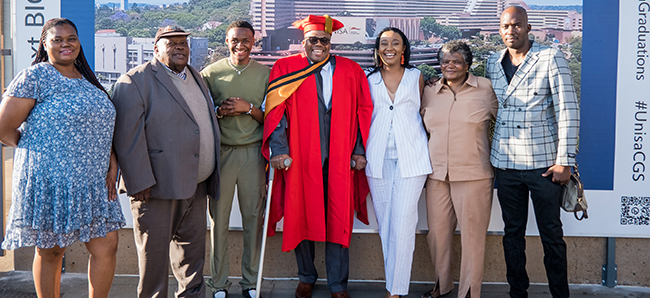
Dr Tonny Matjila with family
Matjila advises current and prospective master's and doctorate students to choose research topics based on passion, to build healthy supervisor-student relationships, to exercise time management skills and to embrace the support of loved ones. He further suggests that students apply and utilise internal and external bursaries, attend research training workshops offered by CGS and have mentors.
#Unisa150
* By Hanli Wolhuter, Communication and Marketing Specialist and Musa Buthelezi, Intern, College of Graduate Studies
Publish date: 2023/09/27
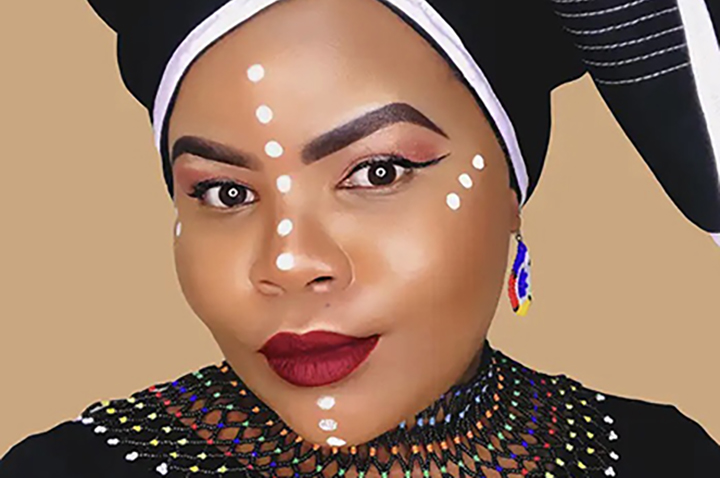 Unisa empowers award-winning agro-cosmetics entrepreneur
Unisa empowers award-winning agro-cosmetics entrepreneur
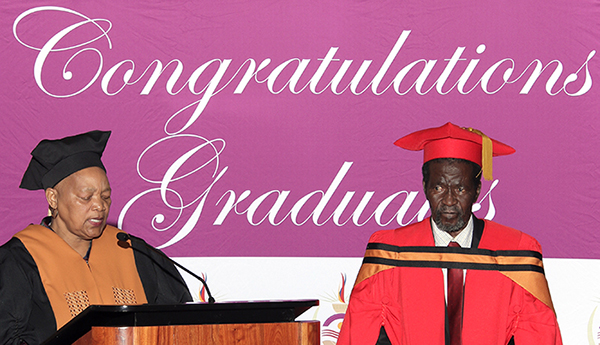 Unisa initiative offers early-career academics "a stepping stone towards greatness"
Unisa initiative offers early-career academics "a stepping stone towards greatness"
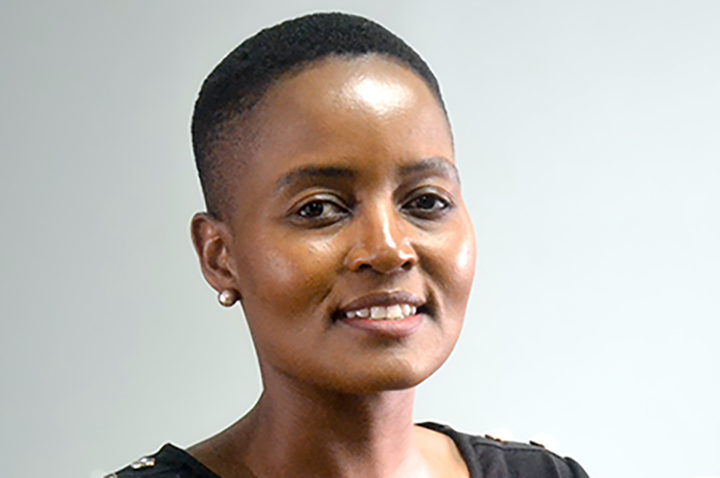 Seasoned meteorologist joins Unisa
Seasoned meteorologist joins Unisa
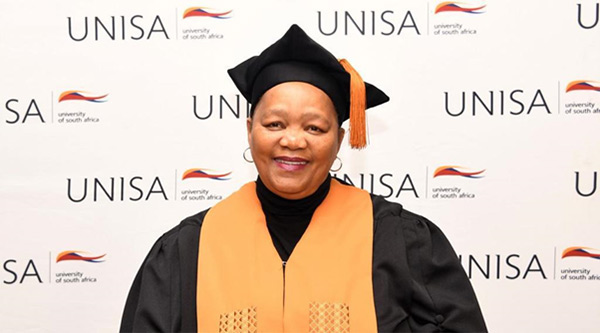 Unisa celebrates the 2023 and 2024 Hiddingh-Currie Award winners
Unisa celebrates the 2023 and 2024 Hiddingh-Currie Award winners
 Unisa celebrates a project of hope, dignity and student success
Unisa celebrates a project of hope, dignity and student success